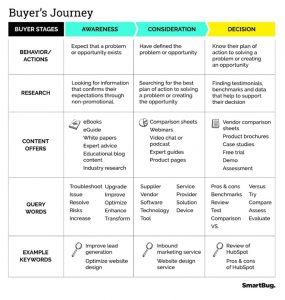Practical optimism can be learned. A psychiatrist explains how and why your well-being depends on it
Dr. Varna spent the past 20 years studying how we can all benefit from the wellspring of optimism and reap its benefits, even if you are the glass-half-empty-type.
Dr. Sue Varma is a board-certified psychiatrist and an award-winning national medical contributor for major news outlets. She is a clinical assistant professor of Psychiatry at New York University (NYU) Langone Health and teaches medical students and residents. Dr. Varma was the first medical director treating first responders and civilians for PTSD, depression, and anxiety at the World Trade Center Mental Health Program (WTC MHP) at NYU Langone/Bellevue.
Below, Dr. Varna shares five key insights from her new book, Practical Optimism: The Art, Science, and Practice of Exceptional Well-Being. Listen to the audio version—read by Dr. Varna herself—in the Next Big Idea App.
1. Optimism is more than just having a positive outlook—it helps deliver positive outcomes.
Optimism is nature’s best-kept secrets. Optimists are healthier, wealthier, live longer, and are more successful in life, work, and relationships. But the best part of it—and probably the biggest secret of all—is that anyone can learn how to think and act like an optimist.
What’s more, optimism isn’t just a feel-good concept; it’s backed by solid research. Numerous studies involving over 200,000 individuals have found that optimism is linked to many positive outcomes. People who embrace optimism tend to enjoy improved immune function, better heart health, and even more positive health outcomes from cancer to surgery to pregnancy. They also experience fewer physical symptoms and less pain in general.
But what if you’re not a natural-born optimist? No problem—I spent the last 20 years studying how we can all benefit from the wellspring of optimism and reap its benefits, even if you are the glass-half-empty-type. But how isn’t optimism genetic? Well, it is, but that’s only part of the story.
Scientists have even identified that optimism is actually associated with the oxytocin receptor gene (oxytocin is a cuddle and bonding hormone that facilitates understanding, empathy, and connection between people—mother and infant, romantic partners, friends, etc. But we are learning that when it comes to optimism, genes play a much smaller role than we once thought. Only about 25% of optimism is genetic; the rest is up to us.
This is something I became acutely aware of when I worked with 9/11 survivors. At first, I sought to understand how people bounced back from adversity, and I became interested in the literature on resilience. But I started seeing a subset of people who not only bounced back or survived but thrived in the face of adversity. All roads led me to optimism (including giving back to others). What was so interesting and unique to me was that these optimism genes that some people were born with don’t just confer a sunny skies cheerful disposition but rather, more importantly, these genes conferred important life skills. These were skills ranging from coping skills to emotional regulation skills to interpersonal skills. What’s so cool about skills is that they can be learned, practiced, and honed even if you weren’t born with them.
Optimism is really the basis of exceptional mental wellness. Pessimism, on the other hand, when left unchecked, increases our risk for depression. Insights can be gained from those who can successfully navigate turbulent waters in the most extreme and stressful conditions. I set out to codify these essential life skills and came up with eight pillars of Practical Optimism, which help us translate positive outlooks into positive outcomes through the right mindset, action set, and skill set. Optimists are born, but practical optimists are made. It starts by being very intentional about who you are and what you want—it starts with having a purpose.
2. Happiness is overrated. Pursue joy, through a purpose-driven life, instead.
Purpose isn’t just about bringing more joy into your life. It is also linked to longer and healthier lives for all age groups. In a study from The Lancet journal, those with a sense of meaning and purpose were 30 percent less likely to die over an eight-and-a-half-year period—this includes dying from any cause, as well as decreased risk of heart attack, stroke, etc. Happiness, to me, is passive, and it’s tied to things maybe you can’t control. Pursuing purpose puts us back in the driver’s seat. It forces us to ask ourselves one fundamental question: What kinds of things or activities bring me great joy, and when was the last time I did them?
Purpose is your unique thumbprint in the world. It’s your soul’s way of consciously and deliberately engaging with the world in a way that only you know how, aligned with your own unique passion, abilities, talents, and interests. Some key things to keep in mind: purpose isn’t always about your paycheck. You don’t need other people’s approval to seek your own purpose. If you can’t find your purpose, you can create it. Put the cart before the horse. When we don’t feel motivated, don’t worry. Dive into action, and the motivation will follow. We call this behavioral activation—letting purposeful action guide you. Populate your calendar with activities that spark motivation and meaning. The key is to become intentional about what gives you joy—which is something you cultivate—instead of waiting for a good time to fall into your lap. Keep in mind, though, purpose changes just like we do. If we are staunch in our purpose, let us be flexible in our path. There is more than one road to lasting joy, with emotional well-being being our ultimate destination.

3. The body expresses what the mind cannot. If you don’t take the time to express what you are feeling, your body will, in the form of medical illness.
This pillar of practical optimism is called processing. As they say, take care of your wellness before it becomes your illness. This means talking about what bothers you rather than sweeping it under the rug or developing an unhealthy coping mechanism. Remember, so much of optimism and practical optimism is about skill sets and coping mechanisms. It takes far more energy to suppress emotions than it does to release them, and releasing them is as simple as keeping a journal for 15 minutes a day. The benefits are great, from boosted immunity and fewer colds and infections to lower heart disease, stroke, and cancer. When you don’t know what to write in your journal, get granular. The more specifically you can learn to identify a trigger in real-time, the better off your mental health will be. A fun way to practice getting in touch with your emotions is called Name it, Claim it, Tame it, and Reframe it.
- Name it: Name what is bothering you. Can you point to an external event, incident, or thought that came to you that caused you to feel bothered?
- Claim it: Where did you feel it in the body? The feeling might manifest as tightened fists or clenched jaws.
- Tame it: Talk to someone, journal about it, or take a few quiet deep breaths. This means acknowledging, sitting with it, going for a walk, or finding a healthy distraction.
- Reframe it: This is often the hardest practice, but also the most powerful. If you aren’t ready for this, that’s fine, but come back to it.
4. Our self-worth exists simply because we do.
This pillar of practical optimism is called pride. Unfortunately, pride gets a bad rap, as people seen as being prideful are often considered pompous or self-absorbed. But the real culprit in my mind is actually self-esteem. Self-esteem is a flawed concept because it relies on us being “human doings” instead of “human beings.” It’s usually tied to external achievement; you do well, your self-esteem is high, you do poorly, it’s lower.
Self-compassion, on the other hand, is a stable, grounded intrinsic sense of self-worth. It is a new way to understand pride. It is based on reality; you know what you are good at and what you are not, but you don’t dislike yourself when you fail. Instead, you say, “I’m human. We all have rough times, and I’ll get through this.” In self-compassion, you practice saying “I’m not alone. I’m not a bad person because I have struggles, I am human.” Try it sometime.
The research shows that self-compassion goes so far with proven benefits. When we teach this to parents, it lowers their stress levels. When we teach it to students, they try harder to improve their test scores after failing. Self-esteem would be in the slumps after failing a test, but self-compassion allows you to do better because you aren’t paralyzed by shame and blame. Studies show that regularly practicing self-compassion leads to a better immune system, less stress, and cardiac problems.
5. Optimism is what optimism does.
Did you know that optimists live not just longer lives but healthier lives? They enjoy exceptional longevity, living long and healthy lives into their 80s. This is the concept of health span, because what good is living a long life if those additional years are spent in poor health? We want to maintain our independence, which depends on cognitive health and muscle health. All of that depends on key habits, from dental health to mental health.
Optimists are better at self-care. They are proactive, believe their actions matter, don’t give up, and go to their annual screenings and medical visits. The secret to a healthy lifestyle lies in cultivating good habits. While some may think it’s all about genetics, the reality is that we have far more control than we might realize. In fact, about 80 percent of our health is determined by our habits. Our emotions, attitudes, and behaviors predict our habits, and these habits, in turn, predict our health. Practical optimism helps us work on our thoughts, emotions, and behaviors— starting from purpose—so that we can create an action plan and road map and execute through habits.
The writer William Durant aptly stated, “We are what we repeatedly do. Excellence, therefore, is not a choice; it’s a habit.” So, if you want to guarantee that you do something every day, don’t leave it up to chance. Automate it. Make it a part of your daily routine until it becomes second nature—a habit that requires no conscious effort.
This article originally appeared in Next Big Idea Club magazine and is reprinted with permission.
ABOUT THE AUTHOR
(12)
Report Post








